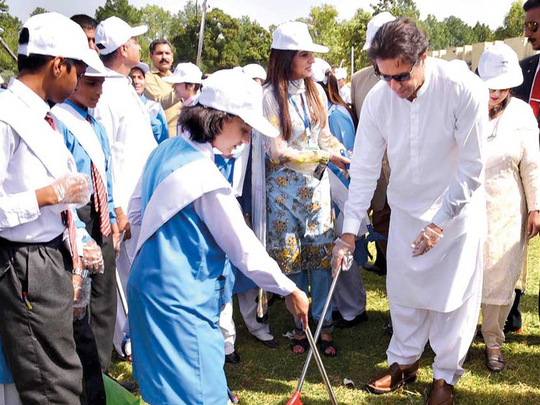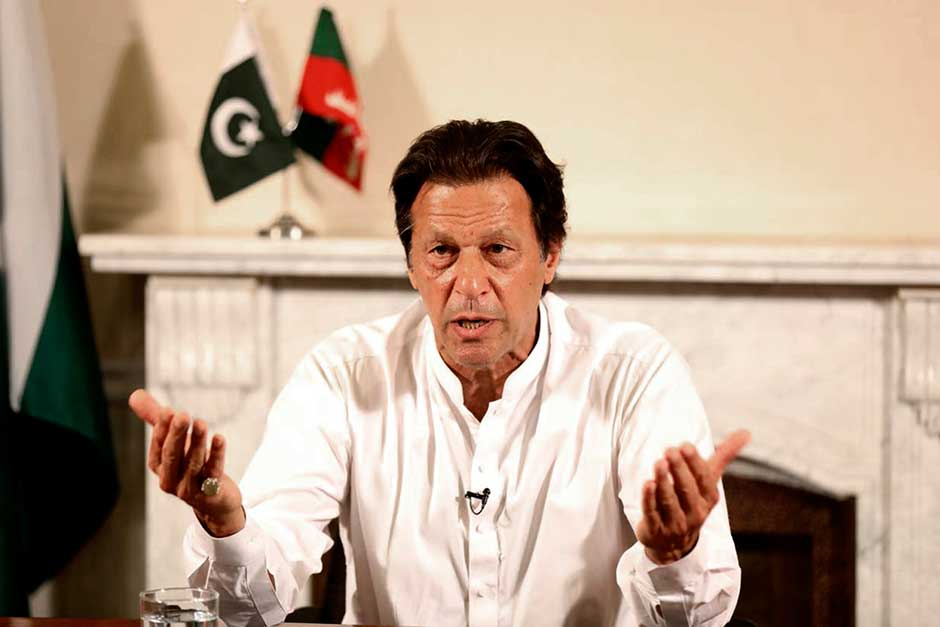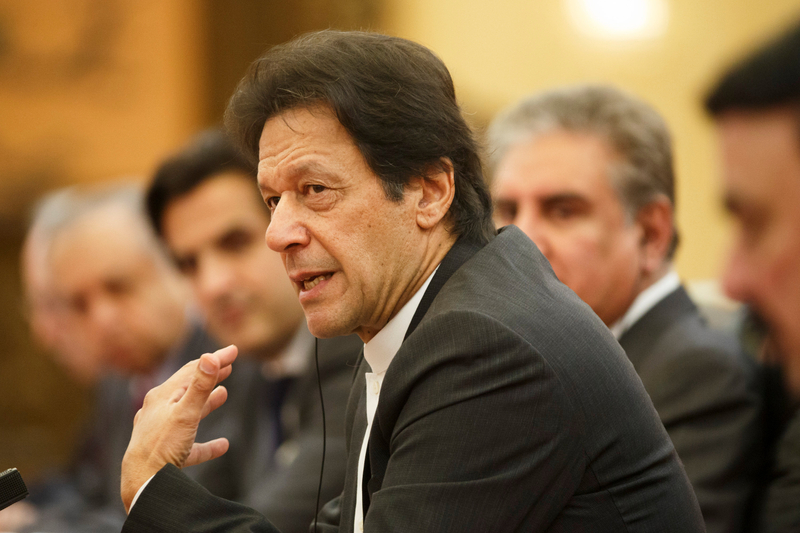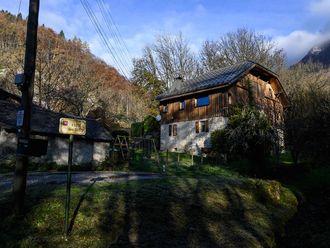
Khana hai lekin abhi naukri nahin hai. You have food but you don’t have a job.
Watching an unofficial video of Prime Minister Imran Khan’s unexpected visit to a newly-inaugurated shelter home in Rawalpindi and his probably-less-than-a-minute interaction with a bearded man in brown shalwar-kameez while shaking hands and talking to a few others reminded me of an old interview of Khan.
In a rendezvous with Simi Garewal in 2004, Khan spoke about his inspiration to build a cancer hospital in the memory of his mother, whose long and painful fight with cancer had deeply affected and changed Khan.
It changed him in a manner whose manifestation in myriad forms appeared in his gradual and long journey in his transformation from a cricket legend in 1992 to a philanthropist in early-1990s to his entry in politics in 1996 to becoming the prime minister of Pakistan in 2018.

Recalling a visit to a hospital during his mother’s cancer treatment, Khan said: “It was one moment. I saw her [his mother] in pain. I was waiting for her doctor. This old man walked in with a slip in his hand; he asked the assistant if he had brought all the medicines, who answered one more was needed.
"I saw this man, his face just became sad. And he left. When asked, I was told that the man’s brother was dying of cancer. He had brought him from a place 100 miles away; no bed in the hospital, he slept on the floor. All day he worked, returned and sat with him all night. And he toiled to buy him medicines.”
Turning point
“Because of my own situation [his mother’s cancer], this became a turning point. Here, I am privileged, no shortage of resources, and look at what I’m going through. What must this man be going through?”
“That was when I thought of building a cancer hospital. Where a poor person can walk in, and if he doesn’t have money, he shouldn’t have to worry about having a loved one treated free.”

In 1985, Khan’s mother, Shaukat Khanum, died of cancer.
In 1994, Shaukat Khanum Memorial Hospital in Lahore was inaugurated.
The first-ever cancer hospital in Pakistan was Khan’s tribute to his mother’s memory, built and run primarily on donations, to date, provides free state-of-the-art treatment to 75 percent of its patients from low-income backgrounds.
Three years ago, during a meal with a friend, a dignified, soft-spoken man in his mid-30s, a PTI leader, currently a federal minister, I was struck by what he said to me, a snippet that long stayed with me from a long chat I had with him on the beguiling and complex business of politics in Pakistan.
“Whenever we have party meetings, and the discussion is about things to do at the moment and steps to take before the next elections, there is only one person whose attention keeps going back to the people of Pakistan... Imran Khan."
"Never in his party discussions with people he trusts he forgets the conditions in which most people exist. His constant desire is to change things for the poor people of Pakistan.”
From building Pakistan’s first cancer hospital to building shelter homes moved by the photograph of a man and his three children sleeping on a roadside, the sentiment is identical: in Khan the man and Khan the prime minister there is a deep empathy for people’s suffering, a desire to make a difference and to change the system with its inherent social inequalities and injustices.
Health reforms
Another of Khan’s January 8 unexpected visits was to the Rawalpindi District Headquarters Hospital, and a few brief interactions with the people there.
Being an observer of Khan’s politics and prime-ministerial work, I have a feeling that there will soon be an announcement of reforms in state-run hospitals and public health sector.
Khan the prime minister is still the human being who doesn’t need a detailed, technical presentation and breakdown of various social and anthropological factors by a board of advisers and experts to be convinced of the need to make a fundamental change in a system of service that caters to the medical and/or any other basic need of the majority of the people.
All it takes is the pain of one old man to understand that there is a need for a cancer hospital for free treatment of underprivileged patients.
All it needs is the photo of one man and his children huddled under a tattered blanket to have a reconfirmation of the ideal that motivated Khan to turn to politics: make Pakistan a social welfare state that runs on Islamic ideals of kindness, fairness, equality and justice.
All it takes is the simple response of one homeless man to accelerate the mechanism of governmental framework in which every Pakistani is provided a chance to earn with dignity a decent wage.
All it takes is one prime minister whose humanity takes him to a shelter on a freezing January night to bring about an essential transformation in the ethos of Pakistan’s social and public system.
All it takes is the discomfort of one patient in a government hospital to have more expedited action in the form of initiatives and steps that are essential to change the way public services are provided in a developing, cash-strapped economy like that of Pakistan.
Humanity
All it takes is one prime minister whose humanity takes him to a shelter on a freezing January night to bring about an essential transformation in the ethos of Pakistan’s social and public system.
All it takes is one Imran Khan as the prime minister to demonstrate with action that his concern for the poor is not just a photo-op, good optics, a feel-good headline, a positive sound bite, empty words of a politician.
Khan sees, feels, is affected, thinks, responds, and acts.
That is what makes him unique, and that is what, despite some flaws, some missteps and many impediments, will ensure that at the end of the five-year tenure of Khan’s government he leaves a legacy of humanity, empathy and kindness, and ergo a Pakistan that is fair, equal, prosperous — and well on its way to be a reflection of the best of the aspirations, principles and humanity of its people and leaders.
Imran Khan’s Pakistan is the Pakistan of all Pakistanis.








